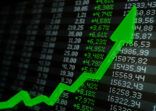Using cash, Laud bought some exposure to European integrated energy names a tactical positon.
“We do not recommend broad-based energy exposure, earnings are still pretty horrific,” said London-based Laud on a recent trip to Hong Kong. She manages the Baring Global Multi-Asset Income Fund, which was launched in Asia earlier this year.
“But with the Fed on hold we believe we should see a tactical bounce in those areas where we [previously] saw large drawdowns.”
Two energy picks
French integrated oil company Total and Royal Dutch Shell are two names she bought.
Total, for example, offers products and services across the supply chain.
“That means earnings are more diversified. The impact of oil prices is spread out because what’s negative for one part of the business is potentially good for the others.
“Oil is used as an input for Total’s chemical business, so lower oil prices translates to better margins on the chemical side.
She added that Total now pays a 7.5% dividend yield. “The company is not going bust and has a very strong balance sheet and cash flow. The CEO has made it clear that the dividend is the cornerstone of Total.”
Shell has some similar characteristics, she said. Both of the large integrated energy companies are better positioned to weather a downturn in commodity prices and could emerge as winners, she said. “Some energy companies will [eventually] be forced sellers and the large integrated names could be potential winners.”
Mexico, Brazil bonds
Fed inaction in September also caused Laud to remove some currency hedges from emerging market local bonds. “With interest rates on hold, the cheap dollar liquidity is breathing space for emerging markets. So you get the full positive impact of rising currency and lower bond yields.”
More specifically, she added exposure to Mexican government bonds, which she views as a core holding in EM bonds.
“Mexico was hit disproportionately more than other EMs [in terms of capital outflows]. If you look at the underlying growth profile, it’s because Mexico is the most liquid. Forced sellers of EM bonds will sell Mexico because it is the most liquid currency and bond market. So it’s the one that gets hit most, but has the best profile.”
She also removed the currency hedge on the short-dated Brazil bond. However, in Brazil she doesn’t see glimmers of an economic recovery. Politics and the Petrobras scandal will create more short-term turmoil.
Yet Brazil pays 15% on a 2-year bond. “If you assume the government will not default, that’s a pretty decent return on short-term paper.”
Currency hedges are tactical moves and are under daily observation, she added.
“The main objective of the fund is geared toward achieving a sustainable level of income, but we want to have an attractive overall total return profile.”
Her views would change if the data is strong enough for the US Federal Reserve to hike interest rates in December, she said.
















